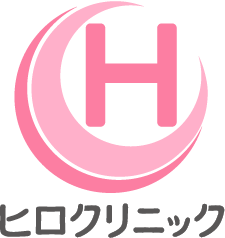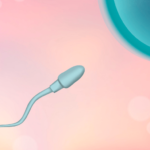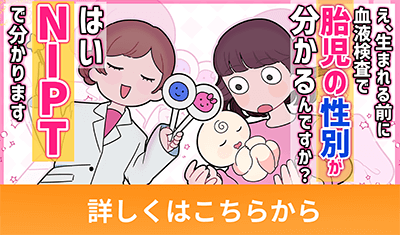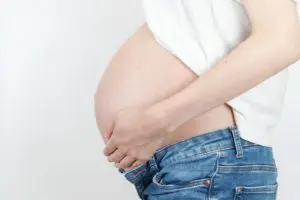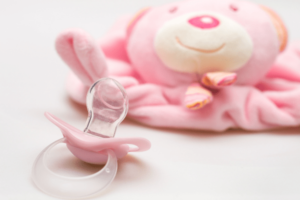What is fertility care?
Fertility care is the process of preparing for pregnancy by preparing the body, mind and environment for conception. Fertility preparation is not something that a mother can do alone; it is something that she can do in partnership with her partner. In concrete terms, the following preparations are involved
- Discuss birth timing and parenting with your partner
- Anticipate and counteract the impact of pregnancy on lifestyle and life
- Knowledge of correct pregnancy and childbirth
- Ensure that you and your partner’s body, mind and environment are fertile
Diet, which is the source of building the body of the mother and her partner, is a very important element that cannot be neglected during pregnancy. In the following section, we focus on the impact and precautions that diet has during pregnancy and introduce recommended foods and nutrients. In the latter part of the section, foods to avoid during pregnancy are also explained.
Pregnancy diet considerations
Pregnant women’s diet is essential for creating a nurturing environment for the baby and for a healthy pregnancy and birth for both mother and baby. This section explains how diet affects both mother and baby.
Effects on Pregnancy
A healthy diet is important for a fertile mind and body. Do not eat or avoid only certain foods for fertility. Also, overeating and a diet biased towards fast food and retort foods can increase the risk of obesity and lifestyle-related diseases, which can increase problems during pregnancy and childbirth.
Unbalanced nutrients can lead to imbalances in female hormones, making it harder to conceive, and can affect the whole body, such as anaemia and malnutrition. Conversely, too much nutrition increases the risk of gestational hypertension and gestational diabetes.
The body also contains mitochondria, cells that break down nutrients and produce energy. Mitochondria are also found in abundance in the egg, but when mitochondria function is reduced, egg function is also reduced and pregnancy rates decrease. To activate mitochondria, moderate hunger and aerobic exercise are important. Eating a regular diet and not overeating is also essential for maintaining egg function.
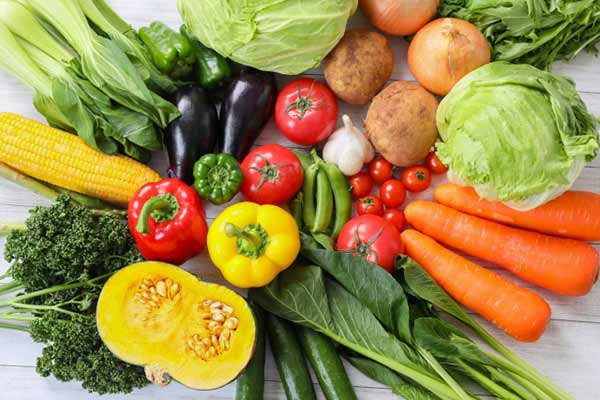
Effects on the baby
A variety of nutrients such as proteins, fats, carbohydrates, vitamins and minerals are essential for the healthy development of babies. Each of these nutrients has the following functions.
| Protein | Build up a body |
|---|---|
| Lipid | Promotes eye and brain development |
| Saccharinity | A source of energy for the baby |
| Iron | Build up a blood supply |
| Calcium | Building teeth and bone |
| Folic acid | Prevent brain and spinal cord disease, produce red blood cells |
Nutrient imbalances and deficiencies increase the risk of imminent premature birth, miscarriage and foetal malformations. Babies born with IUGR/FGR are at increased risk of developing lifestyle-related diseases such as obesity, diabetes and hypertension in the future.
Over-nutrition also increases the risk of overgrowth of babies, such as giant babies weighing more than 4000g. Giant babies are too large to pass through the birth canal and may result in dystocia or caesarean section.
Thus, a diet with too few or too many nutrients during pregnancy can have a significant impact on the baby.
Foods and nutrients recommended during pregnancy
There is no food that says: “Eat this and you will get pregnant easily.” There are no special recipes or nutrients for successful fertility.
A healthy body is essential for successful fertility. To achieve this, you should take a good balance of the five major nutrients – quality protein, fat, carbohydrates, vitamins and minerals – and keep a regular diet.
The key to getting a variety of nutrients without being biased towards carbohydrates, such as pasta, noodles and bread, is to be ‘mako-wa-ayasai’.
Specifically, it is recommended to combine the following foods in your daily menu to help maintain a good nutritional balance.
| Ma | Mame | Natto (fermented soybeans), tofu, deep-fried tofu, ganmodoki (deep-fried tofu) and edamame (green soybeans) |
|---|---|---|
| Go | Goma | Cooking with sesame seeds, dressed dishes, etc |
| Wa | Wakame | Seaweeds Seaweed salads, stews, etc. Avoid hijiki because of its high arsenic content |
| Ya | Yasai | Vegetables |
| Sa | Sakana | Lively seasonal fish |
| Shi | Shiitake | Mushrooms in general |
| I | Imo | Potatoes in general |
In addition, although there is no food that says ‘you must eat this food to have a healthy baby’, folic acid (yo-san) is a nutrient that you should be particularly conscious of during pregnancy.
Folic acid is one of the B vitamins. A deficiency of folic acid during the early stages of pregnancy, when cell division is active, may cause damage to the baby’s brain and spinal cord. Many people are not yet aware of their pregnancy from conception to around six weeks of pregnancy, and it is not possible to take folic acid after they become aware of their pregnancy in time.
To reduce the risk of developing birth defects of the brain and spinal cord, it is necessary to actively take folic acid from one or more months before conception until the third month of pregnancy. It is difficult to consume the required daily amount of folic acid during pregnancy just by taking care of one’s diet. For this reason, it is nowadays recommended to take folic acid supplements.
It is important to maintain a regular, balanced and healthy diet and to actively take folic acid.
Foods and nutrients recommended for the luteal phase
The luteal phase is around 18-28 days after the end of the last menstrual period, when the uterus prepares for the next menstruation. Good quality proteins and lipids, which are the source of cell building, are essential for this. Iron should also be taken consciously to prevent anaemia from being aggravated by menstruation.
Recommended foods are red meat, liver, soya products, spinach and komatsuna.
Foods to avoid during pregnancy
So are there foods to avoid during pregnancy? Here are some foods to avoid and the reasons why.
Raw eggs
Eggs are a highly nutritious food, especially the whites, which are made up of high-quality protein and should be actively consumed during pregnancy. However, eggshells can be contaminated with Salmonella bacteria, which can cause food poisoning. Food poisoning caused by salmonella can lead to miscarriage, so avoid eating raw eggs.
Raw meat
Raw meat can be contaminated with a parasite called ‘toxoplasma’. If a mother gets a toxoplasma infection during pregnancy, the baby can also be infected. The earlier in pregnancy, the more severe the infection is, and if the baby is infected, it can cause stillbirth, miscarriage, hydrocephalus, visual impairment and motor dysfunction.
Diets high in trans fats
Trans fatty acids are found in margarine, shortening, fried foods, fast foods, sweets and pastries. Trans fatty acids are a risk factor for ovulation disorders and may reduce the chances of conception. They are also a risk factor for obesity and atherosclerosis, and obese people are more likely to develop gestational diabetes and gestational hypertension. A diet high in trans fatty acids can easily become habit-forming, so it is advisable to adjust your diet sooner rather than later.
Fertility drinks
When you are pregnant, you want to pay attention not only to your food but also to your drink. 50-60% of an adult woman’s body is made up of water. If there is not enough water in the body, the blood becomes sluggish and cannot deliver the necessary nutrients throughout the body. Naturally, nutrients may not reach the uterus, eggs and fertilised eggs either, so it is advisable to consume 1-2 litres of water.
Drinks to avoid
‘Drink water’ does not mean you can drink anything.
Various studies have been conducted around the world on the relationship between pregnancy and caffeine intake, but it is not known whether it is beneficial or detrimental to pregnancy. However, caffeine has a constricting effect on blood vessels and too much during pregnancy can affect blood flow to the placenta and risk impeding the baby’s growth, so it should be avoided as much as possible. Caffeine is not only found in coffee, but also in black and green tea and energy drinks.
In addition to this, the latest research from Aarhus University in Denmark on the appropriate amount of alcohol. The study reports that less than 14 drinks per week have little effect on fertility: one drink is 330 ml for beer, 120 ml for wine and 20 ml for spirits such as whisky.
However, women who drink more than 14 drinks per week or two drinks per day also reported an 18% reduction in pregnancy rates.
The strength of alcohol consumption varies from person to person. Not all the effects of alcohol are known, so it is important to avoid it as much as possible during pregnancy.
Food recommendations for men
A balanced diet is also important for men. Quality protein is essential for healthy sperm production. Protein should come from a variety of foods such as meat, fish, eggs and soya products.
Zinc is also important for men and is essential for normal prostate and testicular function.
Men should also eat a balanced diet and avoid alcohol and caffeine.

NIPT once pregnancy is confirmed
Many people are concerned about any abnormalities in the baby when they find out they are pregnant.
Tests to check for abnormalities in the baby are called ‘prenatal diagnosis’. At Hiro Clinic NIPT, we offer NIPT(Noninvasive prenatal genetic testing), which is a more detailed examination of the baby’s chromosomal abnormalities than is performed during antenatal check-ups.
NIPT is a test that examines the mother’s blood and is not harmful to the baby. It examines the genetic fragments in the blood and shows whether there is a high risk of chromosomal abnormalities such as Down’s syndrome (21 trisomy), Edwards syndrome (18 trisomy) or Pato syndrome (13 trisomy).
Compared to other non-confirmatory diagnostic tests, NIPT is more reliable and can be performed as soon as the pregnancy is confirmed by ultrasound. If it is found to be positive (high possibility of chromosomal abnormalities), a definitive diagnosis must be made with an amniotic fluid test for a more detailed examination.
NIPT, which shows the possibility of chromosomal abnormalities, is a test that is not harmful to the baby. We recommend that you undergo NIPT once you are sure of your pregnancy.
Summary
Pregnant women need to pay attention to their diet not only for the growth and development of the baby, but also to maintain the health of the mother. Once again, be aware that various nutrients are closely related to each other to build a healthy body. In addition, not only mothers but also men need to pay attention to their diet during pregnancy. The two of you should work together to pay attention to your diet.
If you are worried about any abnormality in your baby after finding out you are pregnant, NIPT is recommended. NIPT at Hiro Clinic NIPT is characterised by a minimum test result reporting time of two days (when using express delivery), which means that the results can be known earlier than at other hospitals. If you are a mother interested in NIPT, please contact Hiro Clinic NIPT for more information.
【References】
- Bureau of Social Welfare and Public Health, Tokyo Metropolitan Government – Dietary habits during pregnancy What you need to know about pregnancy
- National Institute of Infectious Diseases – What is toxoplasmosis?
- BMJ – Alcohol consumption and fecundability: prospective Danish cohort study / Mikkelsen E M, Riis A H, Wise L A, Hatch E E, Rothman K J, Cueto H T et al.
Article Editorial Supervisor

岡 博史先生
【役職】
【資格】
【略歴】
【所属】
【SNS】
 中文
中文
